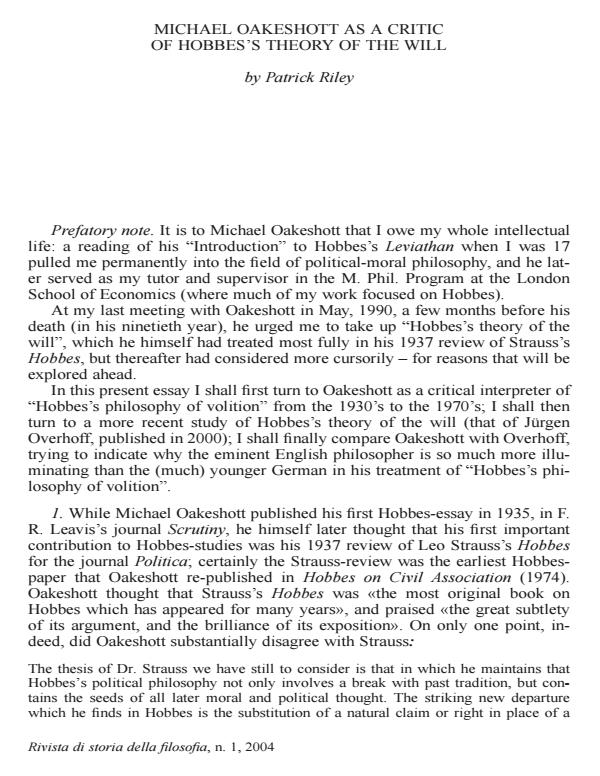Michael Oakeshott as a critic of Hobbes's theory of the will
Journal title RIVISTA DI STORIA DELLA FILOSOFIA
Author/s Patrick Riley
Publishing Year 2004 Issue 2004/1
Language English Pages 9 P. File size 41 KB
DOI
DOI is like a bar code for intellectual property: to have more infomation
click here
Below, you can see the article first page
If you want to buy this article in PDF format, you can do it, following the instructions to buy download credits

FrancoAngeli is member of Publishers International Linking Association, Inc (PILA), a not-for-profit association which run the CrossRef service enabling links to and from online scholarly content.
<i> Michael Oakeshott as a Critic of Hobbes's Theory of the Will </i> (by Patrick Riley) - ABSTRACT: Patrick Riley asks why the post-War Oakeshott stopped speaking of the incoherence of Hobbes’s philosophy of volition, as he had in his Hobbes studies before the War. One answer is that he became more and more sensitive to the necessity of counterbalancing the determinist reading of Hobbes, which tended to be dominant in the 1970s’ Hobbes studies. He cites the example of Thomas Spragens’s The Politics of Motion (1973), according to which the human will appears only as a natural movement in a material universe. Although Jürgen Overhoff’s Theory of the Will (2000) advances the view that there is complete coherence in Hobbes’s conception of volition, Riley finds his arguments unconvincing. In the end, Riley declares himself favorable to Oakeshott’s "less satisfactory" interpretation of Hobbes, given the incoherence between the Hobbesian critique of free will, fully developed in The Questions concerning Liberty, Necessity and Chance, and the requirements of a political theory of contract in terms of a theory of rational will.
Patrick Riley, Michael Oakeshott as a critic of Hobbes's theory of the will in "RIVISTA DI STORIA DELLA FILOSOFIA" 1/2004, pp , DOI: